Helping Providers Improve Care for People at Risk for Suicide
How does this ECHO work?
Alongside a team of experts and specialists in the field, participants will:
- Promote evidence-based tools for identifying and evaluating those at risk for suicide.
- Teach best practices for treatment and application of care plans.
- Create a community of practice for sharing resources and overcoming barriers to treatment.
Suicide Prevention in Health Care ECHO educates and empowers healthcare professionals to competently and confidently treat individuals at risk for suicide.
A multidisciplinary team of mental health experts will share information about best practices, plans and procedures. Clinicians and emergency medicine professionals, school officials, law enforcement personnel and other professionals who interact with the mental health community are encouraged to participate.
The ECHO’s interactive online learning sessions will occur from noon to 1 p.m. every 1st and 3rd Friday of the month.
RegisterWhat does this ECHO offer?
- FREE continuing education for professionals
- Collaboration, support and ongoing learning with a team of experts in suicide prevention
- Patients get better care in their community
- NO COST to participating sites or individuals
Topics for Learning and Discussion:
- Family support of suicidal patients
- Adolescent protective factors
- How to apply evidence-based treatment
- Magnetic resonances treatment (MeRT)
- Social media
- Traumatic brain injury (TBI) and suicide
- Veterans and suicidality
- Post-suicide grief
- Department of Mental Health resources
Meet the Hub Team
Bart Andrews, PhD
Chief Clinical Officer/ Facilitator
Behavioral Health Response
Donald Bohnenkamp, MD
Psychiatrist
Barnes Jewish Hospital/Washington University School of Medicine
Rebecca Hensley-Ward, PsyD
Clincal Psychologist
University Health
Randy Jotte, MD
Emergency Physician
Washington University School of Medicine
Shelby Lang, PharmD
Pharmacist
Center for Behavioral Medicine
Kirsti Millar, MS, LPC
Case Manager
ReDiscover
Richard Nobles, PhD
Psychologist
Robert Poirier, MD, MBA
Emergency Physician
Washington University School of Medicine
Beth Zimmer, MD
Primary Care
Chris Carter Charity for Life
Submit a Case
Are you unsure or concerned about something at your practice? Do you wish you could consult someone about something happening with a particular patient?
Please consider submitting any potential cases! It does not have to be anything exceptionally noteworthy or outstanding. ANYTHING is worth discussing as we learn and grow together. Submit now!
Submit A CaseContinuing Education (CE) Information
To receive CE credit for the ECHO sessions attended you will receive a survey to complete in May and one at the end of October.
This information, as well as the number of ECHO sessions attended, will be sent to the Continuing Education for Health Professions (CEHP) office at the University of Missouri. Once completed, a transcript of your CE credit may be requested by contacting Adam Tipton (tiptonsa@health.missouri.edu) in the CEHP office.

